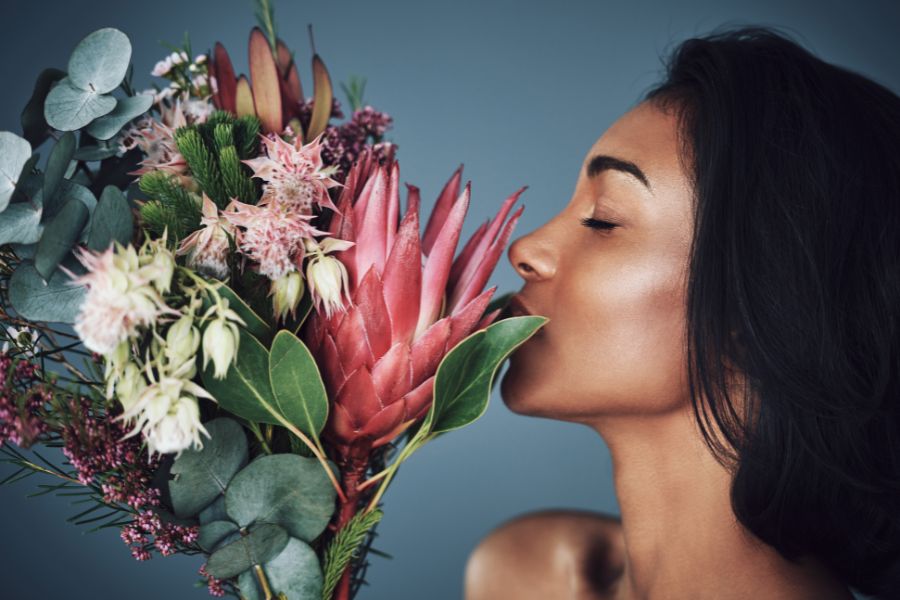When you step into a local flower shop you're hit with a wave of fragrances. Each bloom vies for your attention, not just with vivid colors but with scents that can transport you to different memories and places. But have you ever wondered why some flowers smell absolutely divine and others, well, not so much? Let's dive into the floral world to uncover the secrets behind those irresistible scents and spotlight the champions of the fragrance game.
The Whys of Flower Fragrance
Flowers don’t have noses. This is a well-established fact. So why do they smell so good? It’s not about aesthetic appeal or even about us (humans). It's a game of survival and strategy, played out through scents that fill our gardens and homes with joy.
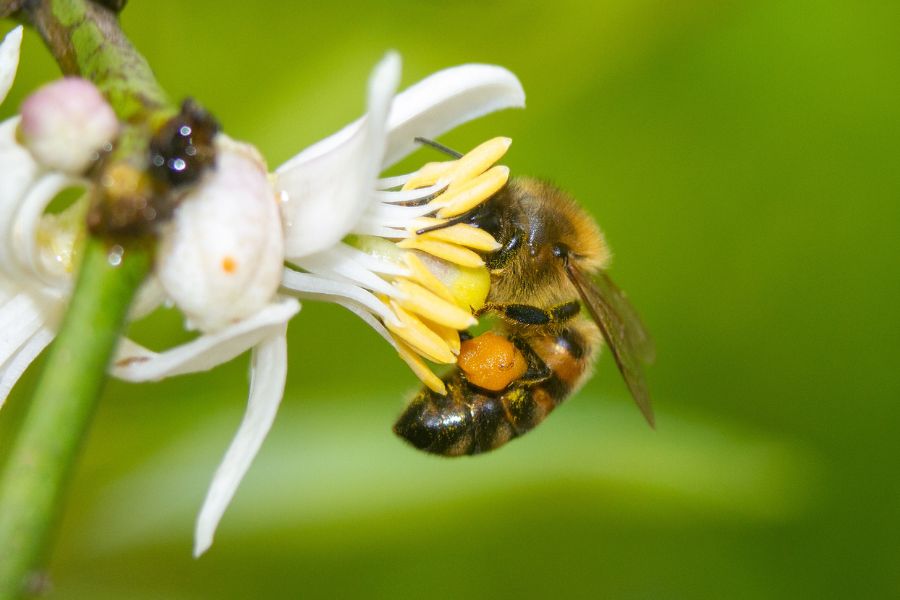
A Tale of Attraction and Repulsion
The primary purpose of a flower's fragrance is to attract pollinators. This is crucial for the reproduction of many plants. Bees, butterflies, hummingbirds, and even bats are drawn to these fragrances, finding their next meal in the nectar of the blooms they visit. Each visit allows these creatures to carry pollen from one flower to the next, facilitating the fertilization process. It’s a natural partnership where the allure of fragrance plays cupid.
But there's a flip side. Some flowers emit odors to repel unwanted visitors. These could be herbivores that might munch on the flowers or even other insects that could be detrimental to the plant's health. The scents produced can serve as a warning or a deterrent, ensuring the plant's survival by fending off potential threats.
The Chemistry Behind the Bouquet
What we perceive as fragrance is a complex cocktail of volatile organic compounds (VOCs) that flowers emit. These compounds vaporize at room temperature, spreading the flower’s scent into the air around it. The specific combination of VOCs is what gives each flower its unique scent signature. From the deep, intoxicating aroma of roses to the light, refreshing scent of lilies, it’s all about the chemistry.

These compounds aren't just random; they're meticulously produced by the plant to appeal to specific pollinators. For instance, flowers that bloom at night emit stronger scents to attract nocturnal pollinators, like moths and bats. Others might mimic the pheromones of certain insects to ensure they're particularly attractive to those species.
A Symphony of Scents
But why do these scents appeal to us? It turns out, our own biology plays a role in this. Humans are hardwired to respond positively to certain smells, those that historically signalled food, safety, or pleasure. Flowers' scents can trigger emotional responses or memories, a trait perfume makers have tapped into for centuries.
The diversity of flower fragrances is as vast as the botanical world itself. Each plant's unique scent is a result of its evolution, adapting over millennia to attract its ideal pollinators while repelling threats. This delicate balance of attraction and defense is what creates the rich tapestry of scents we enjoy today.
Whether it's the sweet, heady fragrance of a blooming jasmine or the subtle, soothing scent of lavender, the world of floral aromas is a testament to the intricate relationships within nature. Flowers don't just smell good to make our world more pleasant; they do so to ensure their survival and continuation through the ages.
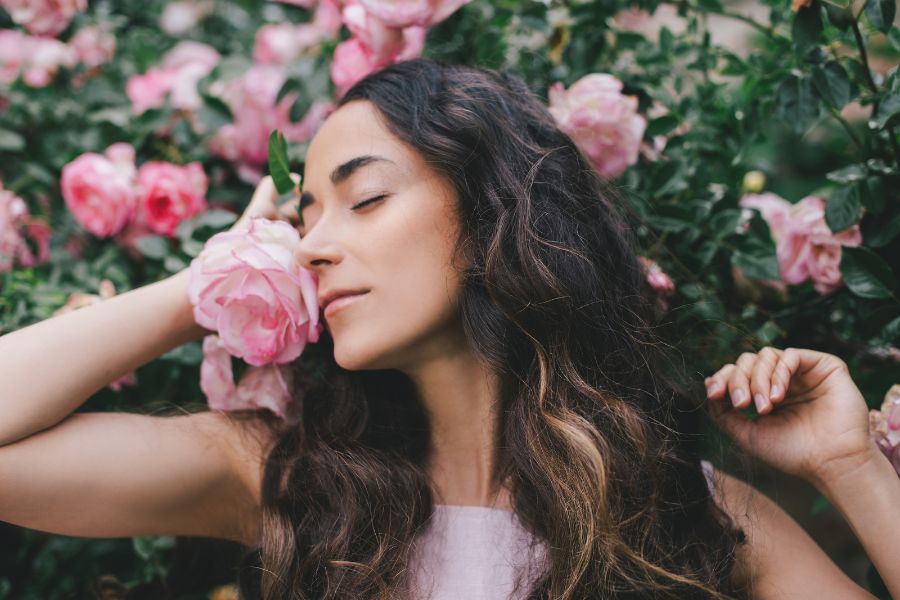
The A-List of Aromatic Blooms
Now, onto the stars of the show. If you're after a bouquet that not only looks good but smells amazing too, here are some top picks.
Roses: The Classic Beauties
No surprise here. Roses are like the Swiss Army knife of the floral scent world, versatile and universally beloved. The fragrance of a rose bouquet can swing from deeply floral to citrusy or spicy, depending on the variety.
Jasmine: The Sweet Serenader
Jasmine's potent, sweet smell makes it a favorite in perfumes and teas alike. Its fragrance is so powerful, it can easily fill a room, transforming the space with its uplifting vibe.
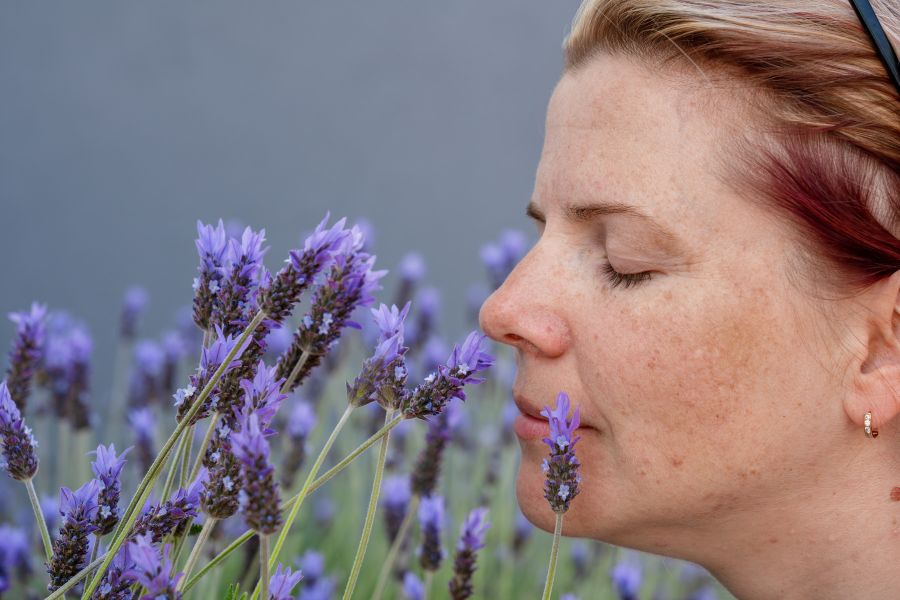
Lavender: The Relaxer
Lavender is known for its soothing properties, but its scent is equally impressive. A whiff of lavender can calm the mind and make you feel like you're chilling in the French countryside.
Gardenia: The Heavyweight Champion
Gardenia's rich, velvety scent is nothing short of luxurious. With warm, honey-like undertones, it's a go-to for anyone wanting to add a touch of opulence to their surroundings.
Mixing and Matching: The Art of Combining Scents
Creating a bouquet isn't just about picking the prettiest flowers. How their scents blend together matters too. Imagine the sweet, intense smell of jasmine balanced with the freshness of lavender. Or the richness of gardenia paired with the subtle spiciness of roses. It's like crafting a symphony where each note complements the others.
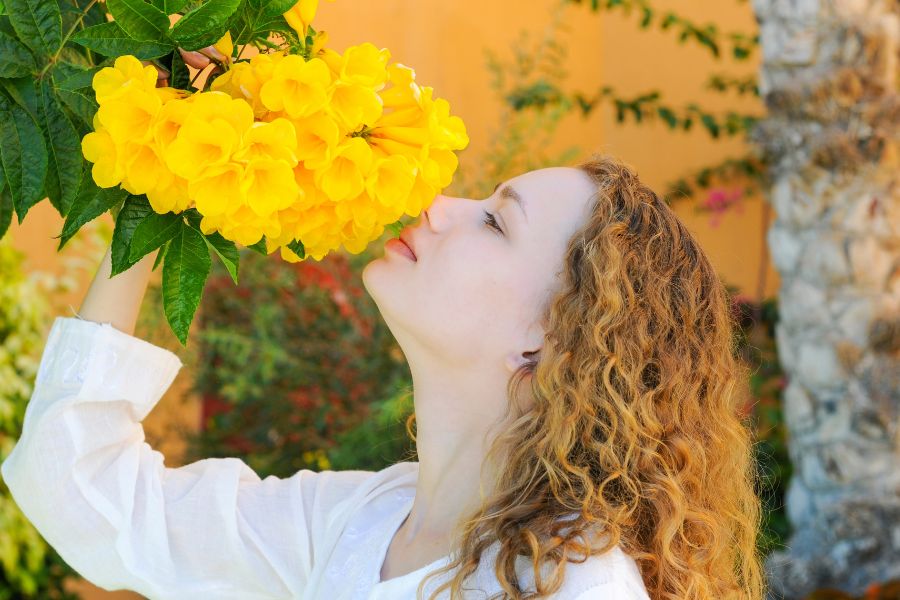
What About the Seasons?
Seasons can dictate the fragrance profile of your bouquet. Spring floral arrangements might call for the fresh, invigorating scents of tulips and hyacinths, while autumn could lean towards the earthy, rich aromas of chrysanthemums or even the slight decay of fallen leaves for a more rustic bouquet.
Dragonetti Florist: Where Scents and Sensibility Meet
So, next time you're wandering through Brooklyn, pop into Dragonetti Florist. Our selection isn't just about blooms that catch your eye; it's about creating experiences that linger in your memory. From the classic elegance of roses to the exotic allure of jasmine, discover the perfect bouquet that speaks to you—or, should we say, smells to you—right here in Brooklyn.

